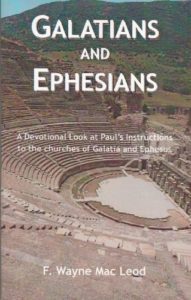
-A small church, in a rural town with a huge loving heart for God and all people.-
Over our 42 years of full-time ministry my wife Mary Ann and I have ministered in many churches in several countries. They have been of various denominations or independent, have large, small or no building, congregations and budgets of all sizes and located in rural, suburban and urban areas. Manmade measurements of a “successful” church tend to be the size of the building, congregation, and budget. We frequently use these indicators to determine if our church or ministry is “successful” or not. It is our experienced observation, however, that these measurements are not how the Head of the church, Jesus Christ, measures a “faithful” local church or ministry. His measurements are having a joyful obedient love for God, loving our brothers and sisters in Christ, and our neighbors regardless of who they are and where they live.
Recently we ministered in a small church in a small rural town. They are joyful, gracious, and hospitable and have a huge love for God, one another and local and foreign missions. They are easy to be with and everyone is warmly welcomed. They are a delight to preach to because they are hungry for God’s Word. Simply put, they love God, each other, and their neighbors both across the street and around the world. When we left them, our hearts were full after we gave them everything we had to give.
When I think of this church these verses come to mind:
Matthew 22:37-40 “You shall love the Lord your God with all your heart and with all your soul and with all your mind. This is the great and first commandment. And the second is like it: You shall love your neighbor as yourself. On these two commandments depend all the Law and the Prophets.”
Romans 5:5b “God’s love has been poured into our hearts through the Holy Spirit who has been given to us.”
John 3:16-17 “For God so loved the world, that he gave his only Son, that whoever believes in him should not perish but have eternal life. For God did not send his Son into the world to condemn the world, but in order that the world might be saved through him.”
John 13:34-35: “A new commandment I give to you, that you love one another: just as I have loved you, you also are to love one another. By this shall all people will know that you are my disciples, if you have love for one another.”
There are other measurements for determining the “fruitfulness” of our church or ministry but these are on my mind as I reflect on being with these precious brethren.
How are we doing personally in light of these verses of Scripture? Is our church or ministry faithful and fruitful according to God’s word? Let us prayerfully think about pleasing the Lord Jesus rather trying to measure ourselves according to manmade indicators of success.













